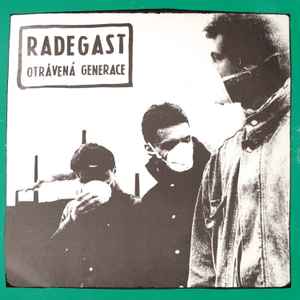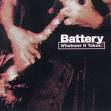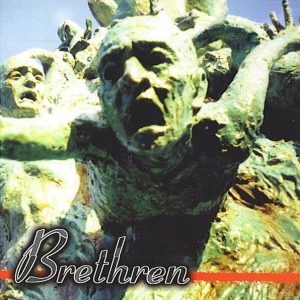Description
What more ideal conditions than dirt, stench and total futility can you imagine when you are founding a band that plays music that is not tolerated by the regime, in a city that was supposed to be the pride of socialist industry, but turned into a workers’ Tower of Babel crammed with alcoholism and violence. Alcohol also plays a crucial role in the group’s story, if only because the band Radegast was named after the most preferred brand of beer in the region. The album Otrávená generace is not only the proud parent of the domestic hardcore scene, but also a generational statement of young people trapped in a lunar landscape full of smog, factory chimneys and mining towers. In the pride of the republic!
Poisoned air, poisoned water, poisoned food,
we are a poisoned generation.
Poisoned land, poisoned trees, poisoned animals,
we are a poisoned generation.
Much has been said about this band, not only in punk circles. After all these years, its fate has already reached the level of an urban legend, because all memories will be covered by the dust of oblivion and subsequently appear only as unique stories of (non)participants. Radegast was actually formed as a discussion group of dysfunctional youth who exchanged secretly made recordings of their favorite music over beer. When their parents left home, they would occasionally practice on instruments of poor quality. Some more specific outlines of their work appear only in 1984, when the band began rehearsing at the Chateau in Havířov, the Mecca of the local unofficial scene. Úderka also begins to perform, and over time two demos are recorded, which are released on vinyl in 2021 by Papagájův hlasatel under the all-encompassing title Demos 86/89. After the second recording, it is time for major socio-political changes, after which bands that were previously banned can now record and release freely. It is therefore clear to everyone around the band that the time has come for a regular album. Over time, the album Otrávená generace has become not only a symbol of a certain era in a region built on heavy industry, but also a sought-after collector’s rarity, for which someone sometimes pays a decent sum. But, as is often the case, the truth is out there – Jonšta then threw about half of the vinyl load into the plastic containers in Havířov in disgust – it is written in the attached memoirs. Such could be the story of a punk band that was born in the sty of communism, only to then painfully awaken to “new times”. Milan Jonšta describes all this and much more colorfully in an extensive biography of the original hard band, whose swan song was this album. The songs that survived the fall of the Iron Curtain, with their special poetics, ultimately failed to correspond to the established post-velvet times. Their inner charge seemed to have disappeared somewhere, and the same thing happened with the fate of this band that was born from the hopelessness of the youngest city in the republic. Moreover, its members at that time had reached an age when families, university studies, work and other necessities suddenly took precedence, which eventually forced them to hang up their guitars. But that’s how legends are born.
If someone wants to know your opinion on a war,
or a conflict between this and that,
if someone happens to ask,
wittily,
what do you know about a country where tomorrow is already yesterday,
say you weren’t there.
The album was originally recorded in Ostrava’s Studio 3 in 1991. Reissued in 2024.




